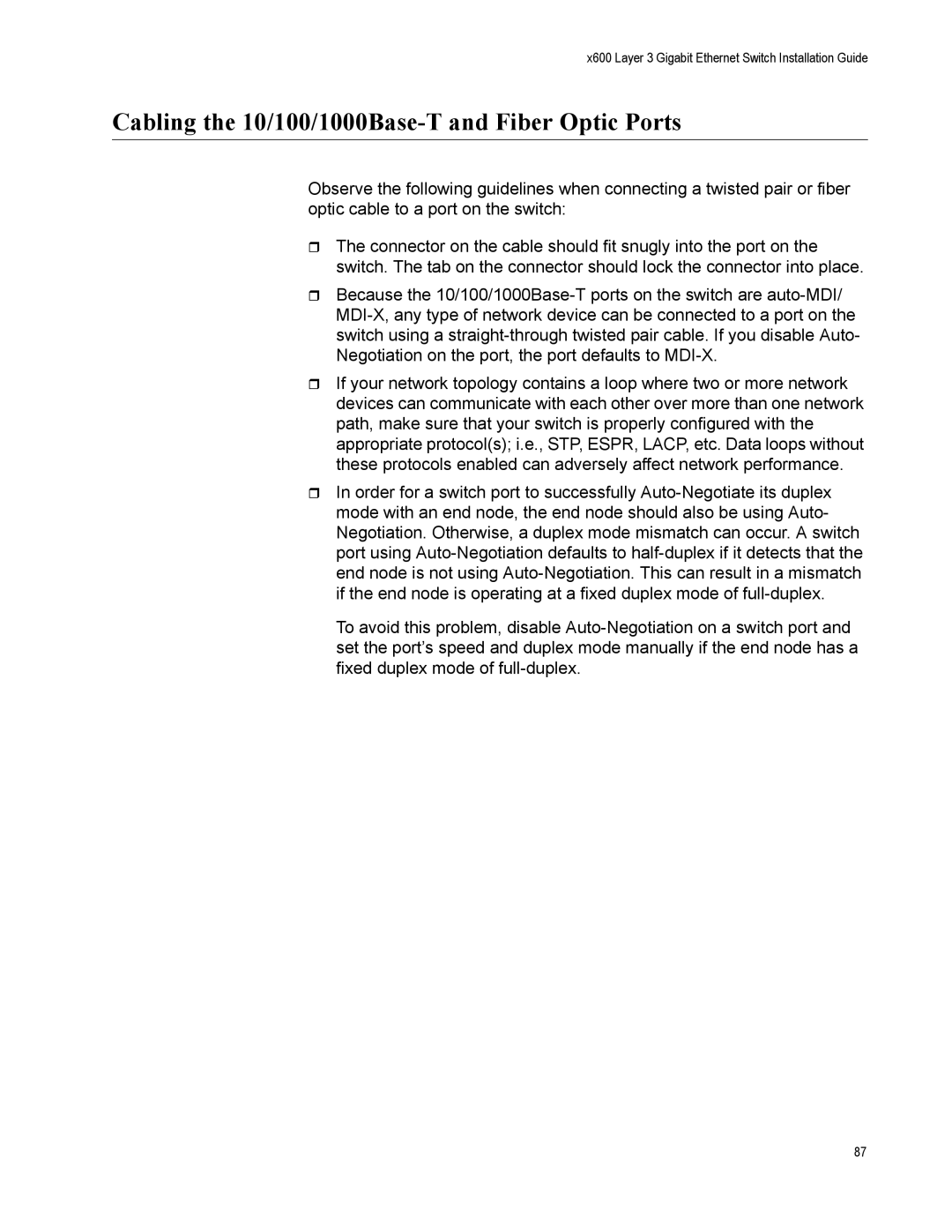x600 Layer 3 Gigabit Ethernet Switch Installation Guide
Cabling the 10/100/1000Base-T and Fiber Optic Ports
Observe the following guidelines when connecting a twisted pair or fiber optic cable to a port on the switch:
The connector on the cable should fit snugly into the port on the switch. The tab on the connector should lock the connector into place.
Because the
If your network topology contains a loop where two or more network devices can communicate with each other over more than one network path, make sure that your switch is properly configured with the appropriate protocol(s); i.e., STP, ESPR, LACP, etc. Data loops without these protocols enabled can adversely affect network performance.
In order for a switch port to successfully
To avoid this problem, disable
87
